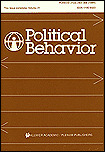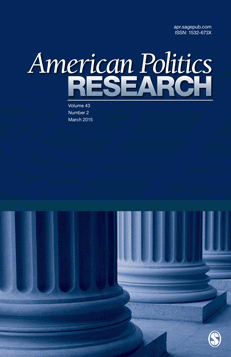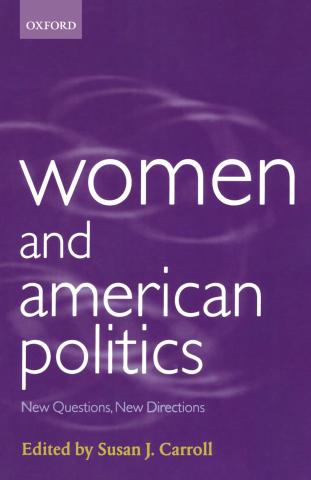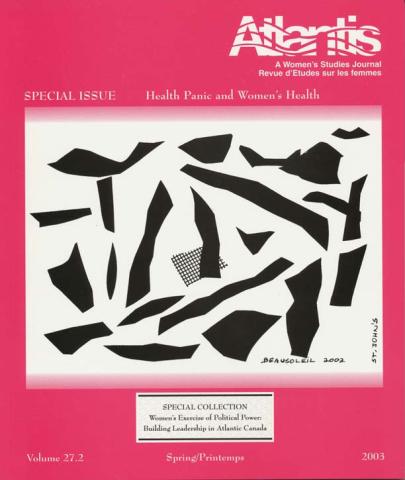Gender-Related Political Knowledge and the Descriptive Representation of Women
by Kira Sanbonmatsu
Political Behavior, 2003 (December)ArticleResearchCAWP ScholarCivic and Political ActivismCandidates and CampaignsCongressWomen Candidates for State Legislative and Statewide Executive Office 2003
Fact SheetElection WatchState LegislatureStatewide ExecutiveSummary of Numbers of Women Running for State Legislative and State Executive Office in 2003
Fact SheetElection WatchState LegislatureStatewide Executive"Political Knowledge and Gender Stereotypes"
by Kira Sanbonmatsu
American Politics Research, 2003 (November)ArticleResearchCAWP ScholarCandidates and CampaignsWomen Voters and the Gender GapCandidate Recruitment and Women's Election to the State Legislatures
by Kira Sanbonmatsu
Center for American Women and Politics, Eagleton Institute of Politics, Rutgers, The State University of New Jersey, 2003, 47 pagesReportResearchCAWP ScholarPolitical PartiesCandidates and CampaignsCandidate RecruitmentAre US Women Legislators Accountable to Women? The Complementary Roles of Feminist Identity and Women’s Organizations
by Susan J. Carroll
2003, 14 pagesReportResearchCAWP ScholarCivic and Political ActivismImpact of Women Public OfficialsWomen and American Politics: New Questions, New Directions
Edited by Susan J. Carroll
Oxford University Press, 2003, 262 pagesBookResearchCAWP ScholarPolitical PartiesCivic and Political ActivismCandidates and CampaignsCandidate RecruitmentGender and Race/EthnicityWomen Voters and the Gender Gap"Have Women State Legislators In the United States Become More Conservative?: A Comparison of State Legislators in 2001 and 1988"
by Susan J. Carroll, Atlantis 27:2(2003): 128-139.
ArticleResearchCAWP ScholarState LegislatureGender, Political Ambition, and the Initial Decision to Run for Office
by Richard L. Fox
Center for American Women and Politics, Eagleton Institute of Politics, Rutgers, The State University of New Jersey, 2003, 14 pagesArticleResearchCandidates and CampaignsCandidate Recruitment2002 Election Results: Women Candidates for State Legislature
Fact SheetElection WatchCandidates and CampaignsState Legislature
Research and Scholarship
CAWP research and research by CAWP scholars that addresses emerging questions about American women's political participation.








